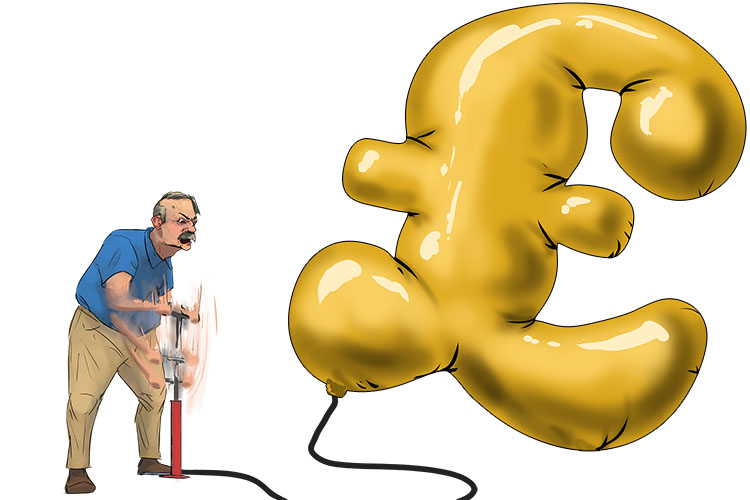inflation – A percentage of change in the value of goods and services over usually a year; a general increase in prices
(Pronounced in-flay-shn)
To remember what inflation means use the following mnemonic:
I have to inflate the price with a continuous pumping motion (inflation) to keep the price rising.

Many countries monitor and publish how much a large number of goods cost at the start of the year and then compare the cost of the goods one year later. About seven hundred goods are monitored. Items include food, alcohol, furniture, clothing, transport and energy to name but a few. This difference is worked out as a percentage change over a year. Usually, this percentage increases, but sometimes it can decrease. This is called the rate of inflation or the consumer pricing index (CPI). It tells the government and the public what percentage increase or decrease this set of goods has incurred. For example, if a set of goods cost £100 and inflation went up 10% in a year then then this set of goods would cost £110 a year later.
The rate of inflation is used at the start of wage negotiations. It is used as a guide to how much your savings will earn in a bank and how social housing rent increases. If the prices in the shops have gone up but your wages have not you will not be able to buy as many goods with the same money.
When prices rise excessively, money decreases in value because inflation causes it to have less purchasing power. Countries can have hyperinflation which is generally defined as price increases of 50% or more per month. For individuals and economies, the effects of hyperinflation can be devastating. The prices of consumer goods rise too fast for wages to keep up, leaving consumers unable to pay for basic necessities.
Inflation is a rise in prices, which can be translated as the decline of purchasing power. This often happens because of supply shocks - major disruptions to an important economic input, like energy.
Inflation also has a global effect when businesses trade with other companies abroad. If inflation is higher in the UK than it is elsewhere, then the UK’s goods become more expensive to other countries and will lead to reduced demand for UK products.




